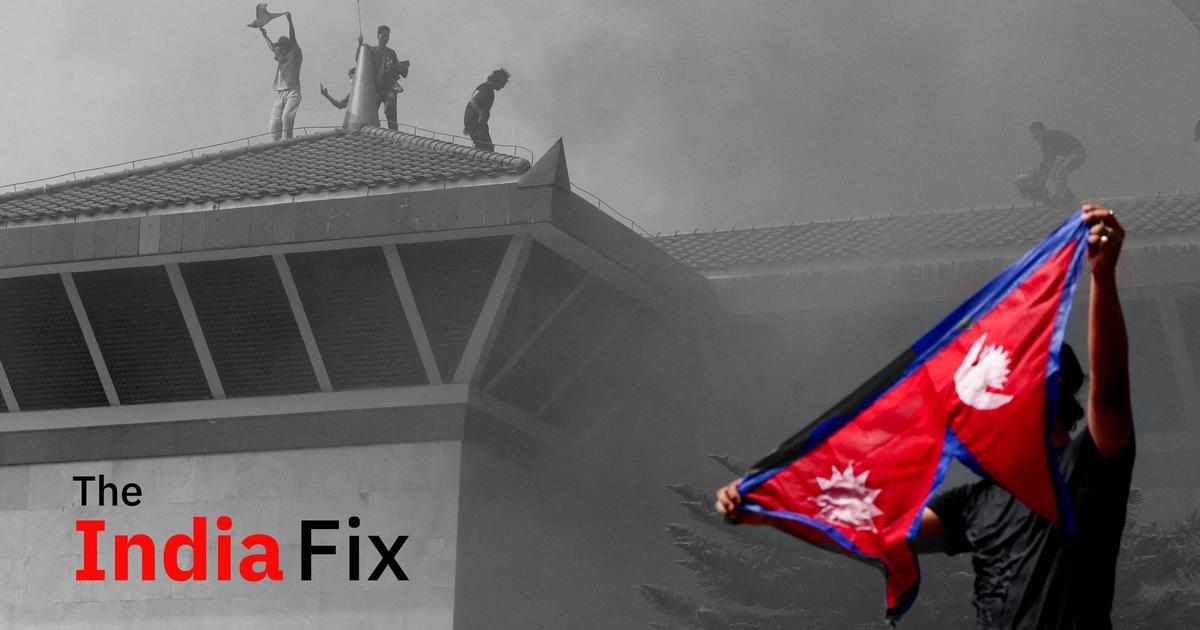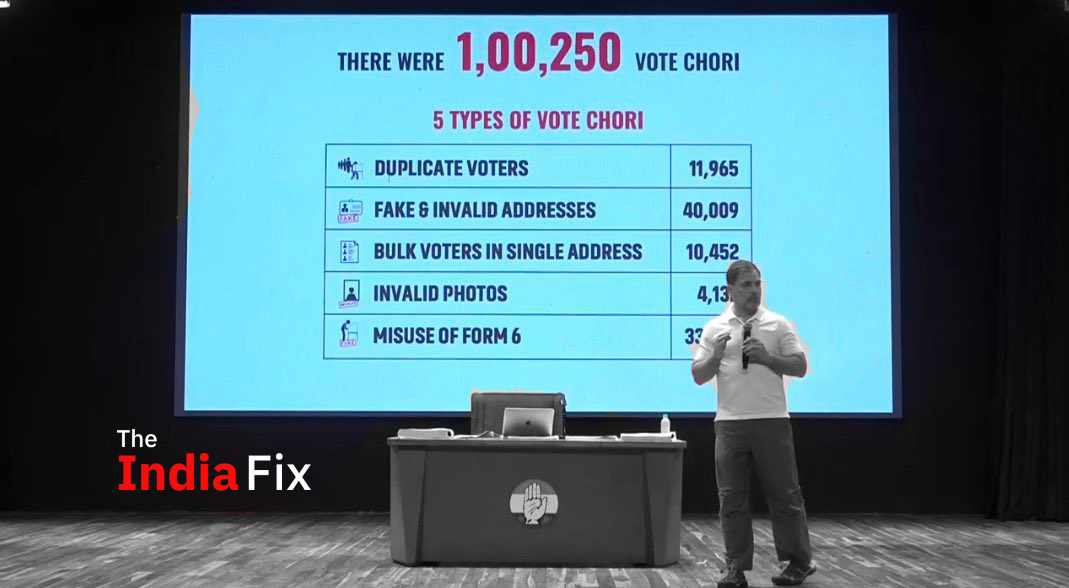
Welcome to The India Fix by Shoaib Daniyal, a newsletter on Indian politics. With election results in and the BJP failing to win a simple majority – after boasts of winning 400 seats – Indian politics is undergoing a paradigm shift. On this Fix, we unpack one facet of this change: the falling fortunes of hate in electoral politics.
As always, if you’ve been sent this newsletter and like it, to get it in your inbox every week, sign up here (click on “follow”).
Have feedback, interesting links or think I am wrong? Write to me: theindiafix@scroll.in
Narendra Modi is no stranger to communal politics. But even by his standards, what he said on April 21 in Rajasthan’s Banswara was startling. The prime minister alleged that the Congress, if it came to power, would implement its ideas of wealth equity by snatching away the mangalsutras of Hindu women and handing them over to Muslims.
The mangalsutra is a necklace worn by married Hindu women which, much like a wedding ring, is a marker of marriage. While what Modi said was not true (the Congress had obviously made no such promise), by linking the emotive symbols of a Hindu woman’s marriage to “Muslim appeasement”, the prime minister was making a powerful appeal to hate. That was not all. Modi went on to describe Indian Muslims “infiltrators” and “those who have more children”.
Diminishing returns
On Tuesday, as the election results streamed in, it was clear that Modi’s extremism had not paid off. The Hindutva party lost Banswara by a landslide, trailing the winner by 2.5 lakh votes.
For a decade now, the BJP under Modi has deployed its ideology of Hindutva as a sharp electoral tool. Much of this simply meant pillorying Muslims, one of India’s poorest, most vulnerable groups. While morally repugnant, the political results were impressive. Hindutva helped the BJP shape a coalition of improbables, uniting Hindu castes across the spectrum into a formidable electoral bloc.
But like in Banswara, it is clear that this strategy had limited appeal across India in this election. While Modi ran India’s most communal election campaign, the BJP’s seats went down sharply – not up.
Does this mean India’s voters voted against hate?
Yes – and no.
Hindutva dominance
There is little doubt that Hindutva has a powerful appeal in many parts of India. To some extent, this is an idea that predates the BJP. When the BJP pushes Hindutva, it finds ready appeal among a significant section of India’s electorate.
There is this little doubt that Modi’s communal statements in this election would have been cheered on by at least this section.
The problem for the BJP, however, is that by itself this segment of the population is not enough to construct an electoral plurality. The Indian Union is so huge and diverse that even at its peak, Hindutva is only one of the issues at play in a national election.
Livelihoods vs temples
Take the Ram Mandir in Ayodhya. Built on the site of a mosque demolished by a Hindutva mob, the temple is the centerpiece of Hindutva and the single most important reason for the BJP’s rise to national prominence. In January, Modi inaugurated the temple in the manner of a mediaeval Hindu sovereign, with images of this merger of state and faith being broadcast across India.
In spite of this, the BJP lost the very constituency in which the temple is situated. A ground report by my colleague Supriya Sharma found that in Faizabad, many Dalit votes were not based on the Ram temple but on more mundane issues: caste-based reservations and the stray cows that had proliferated because of the laws banning beef. Even though many had voted BJP in the past, the decision was based on another bread-and-butter issue: free rations.
In the realm of ideas, Hindutva would likely be unchallenged even among many of Faizabad’s Dalits. The Bahujan Samaj Party, Uttar Pradesh’s largest Dalit-led party, has in fact supported the Ram Mandir. But would many Dalits base their vote on it? Unlikely.
This point can even be seen in polling data. A pre-poll survey by the Centre for the Study of Developing Societies-Lokniti thinktank found that only 8% of voters listed the new temple in Ayodhya as their primary issue. What were the top two concerns? Unemployment and inflation. In fact, almost half the respondents listed these as their primary concerns.
It is not like the BJP does not know this. One of the first changes Modi did after gaining power in 2014 was to shift from a libertarian focus on small government to expansive welfare. This played a key part in his 2019 win. But inexplicably, the BJP’s obsession with Hindutva in this campaign saw other issues sidelined.
Electoral secularism
Secularism in India is often seen to be a top-down idea imparted by the Constituent Assembly of the 1940s. Of course, there is no doubt that the Constitution played a significant role in popularising the idea of secularism. However, it is clear that credit for preserving it, in whatever imperfect form, should go to the fact that India’s governments are forced to seek a popular mandates.
At the polls, they face an electorate that does, partially, support Hindutva. But India’s voters also value so many other issues that Hindutva by itself is not enough to win an election.
The decline of the Communists in India is often blamed on left parties sticking too rigidly to ideology, ignoring the realities of India’s society. A smaller version of that error could also have been made by the BJP in this election. The party mistook its own singular focus on Hindutva to also be the primary concern of India’s people.
Apart from Modi’s hate speech, this dynamic could also be seen in the Citizenship Amendment Act that, for the first time, bought in the element of religion to Indian citizenship. Though a core part of the BJP’s Hindutva, the new law hurt the party in Bengal, pushing Muslims into the arms of the Trinamool. But it did not help increase the BJP’s vote share. This was partly responsible for the BJP’s crushing defeat in Bengal in this election.
The result of this focus on Hindutva at the expense of other issues: In spite of unprecedented money, media control and institutional capture, the BJP has been unable to win a simple majority in India’s Parliament in 2024.





















Write a comment ...